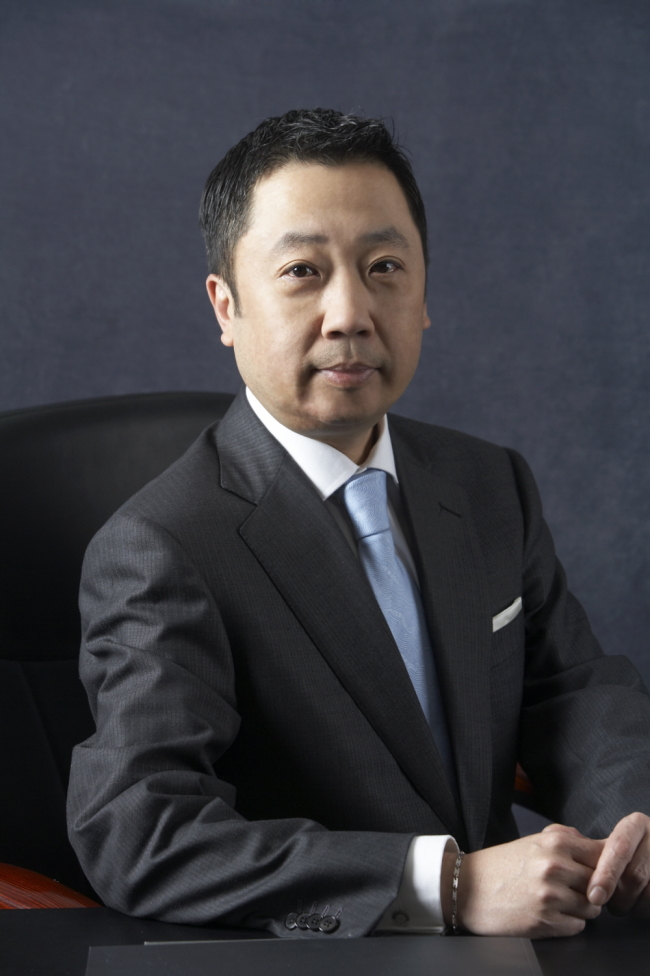[Newsmaker]Will Doosan's generation shift bring changes?
New chairman likely to seek stability in management, not radical restructuring, experts say
By 조정은Published : March 3, 2016 - 17:45
Doosan Group chairman Park Yong-maan’s announcement he would hand over his top position to his nephew Park Jeong-won surprised the corporate world here this week, not just because of the peaceful power transfer he sought, but also because of the timing and significance the decision carried.
The 54-year-old heir has always been first in the succession line, according to a unique tradition of the family-owned business, similar to the leadership of Muslim dynasties that has tended to pass between brothers.
Park Yong-maan, the fifth son of Doosan’s first chairman Park Doo-byung, was the last in the order of chairmanship in which his brothers took turns for decades.
Therefore, Park Jeong-won, the first grandson of Park Doo-byung, formally ends the leadership of his father’s generation and is set to usher in a new era for the group. The succession also came at a tricky time, as the group is in dire need for a change and new vision.
But the question is whether this generational shift will bring fresh changes needed to tackle the crisis it is facing, or will it be just a customary succession event?

Starting as a food and beverage firm, Doosan turned to the business-to-business market with a focus on machinery and heavy industries in the early 2000s. This transition exposed Doosan to wider markets overseas. But the group soon encountered the global economic recession in 2008 that curbed demand from the construction and heavy industry markets.
Last year, Doosan Infracore, a machinery affiliate of the group, suffered more than 850 billion won ($700 million) in net losses, while Doosan Heavy Industries, another major business of the group, recorded 1.75 trillion won in net losses. Doosan Engineering and Construction also went into the red in the last three years. To secure cash, Doosan Infracore has decided to sell its machinery tool business to private equity fund MBK Partners for about 1.18 trillion won. Doosan is the 17th-largest conglomerate by assets, according to the list by the nation’s Fair Trade Commission.
The group appears to be confident in the new leader. Calling him a game changer, Doosan introduced a list of accomplishments the heir has achieved so far to highlight him as the right man to set a new vision.
Born in 1962, Park was raised in Seoul and studied business at Korea University. He joined Doosan Industrial in 1985 as a junior staffer, but left for the U.S. to pursue an MBA degree from Boston University. Keeping the family tradition of exploring other business entities, Park worked as a manager at the Japanese firm Kirin Brewery Company, but returned to the family business in 1993, working in various positions for many years.
Park is known as a person with initiative and drive. He has demonstrated his management skill by boosting the revenue of Doosan Business Group, a trading firm that he led, by 30 percent in 2000.
Park, currently as the chairman of Doosan Corp., the holding company of Doosan Group, has played a crucial role in securing new growth engines for the group.
In 2014, he led Doosan to make inroads in the fuel cell market and win a business license for a duty-free business, according to reports. Known as a baseball enthusiast, he also owns the Doosan Bears, a professional baseball team that won the Korean Series title in the Korea Baseball Organization last season.
Despite the image of an innovative leader the group has painted, industry sources say that the new chairman would seek stability in management rather than implementing a radical restructuring process to slim down the group’s structure.
“As a legitimate successor, Park has prepared for the chairmanship for 31 years, but he has proved little as a conglomerate leader,” said Jeong Seon-sub of Chaebul.com, a local business tracker.
“He is likely to pursue stability in leadership and rather serve as a symbolic figure in the group by giving more roles for his cousins to manage each affiliate -- a job that must be done to prevent family trouble.”
By Cho Chung-un (christory@heraldcorp.com)







![[KH Explains] Hyundai's full hybrid edge to pay off amid slow transition to pure EVs](http://res.heraldm.com/phpwas/restmb_idxmake.php?idx=644&simg=/content/image/2024/04/18/20240418050645_0.jpg&u=20240419100350)






![[From the Scene] Monks, Buddhists hail return of remains of Buddhas](http://res.heraldm.com/phpwas/restmb_idxmake.php?idx=652&simg=/content/image/2024/04/19/20240419050617_0.jpg&u=20240419175937)

![[KH Explains] Hyundai's full hybrid edge to pay off amid slow transition to pure EVs](http://res.heraldm.com/phpwas/restmb_idxmake.php?idx=652&simg=/content/image/2024/04/18/20240418050645_0.jpg&u=20240419100350)

![[Today’s K-pop] Illit drops debut single remix](http://res.heraldm.com/phpwas/restmb_idxmake.php?idx=642&simg=/content/image/2024/04/19/20240419050612_0.jpg&u=)